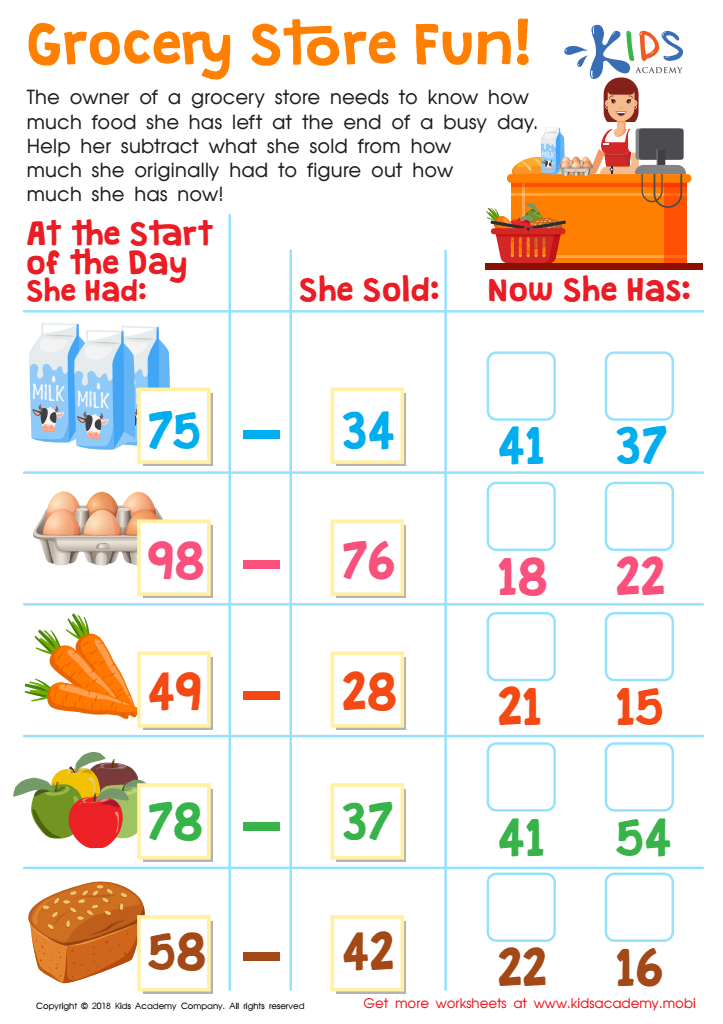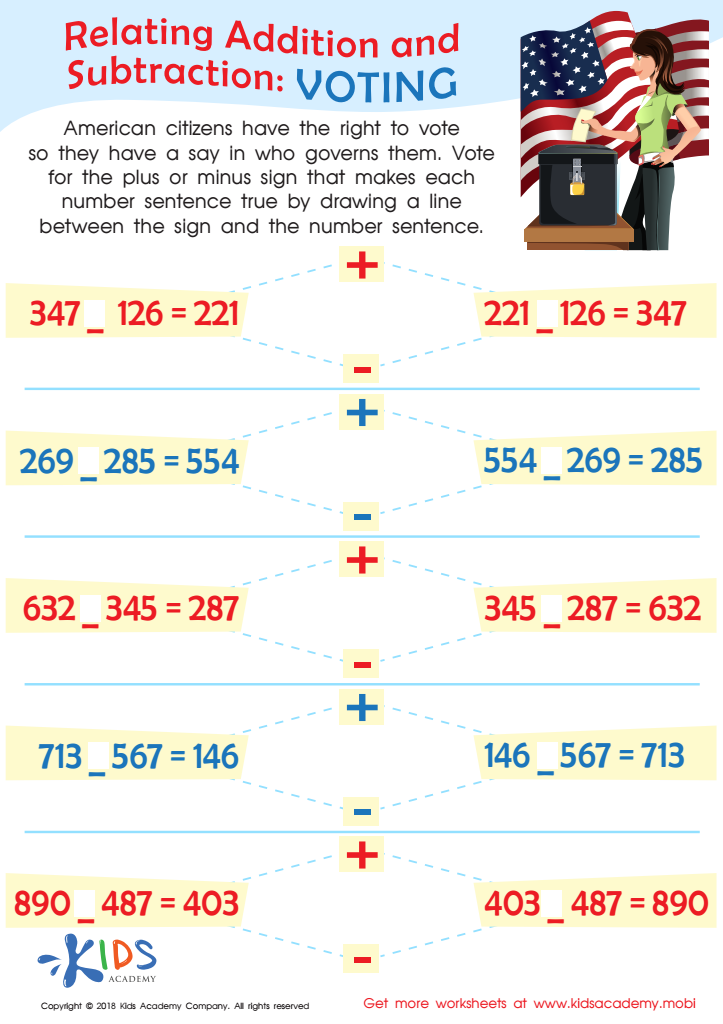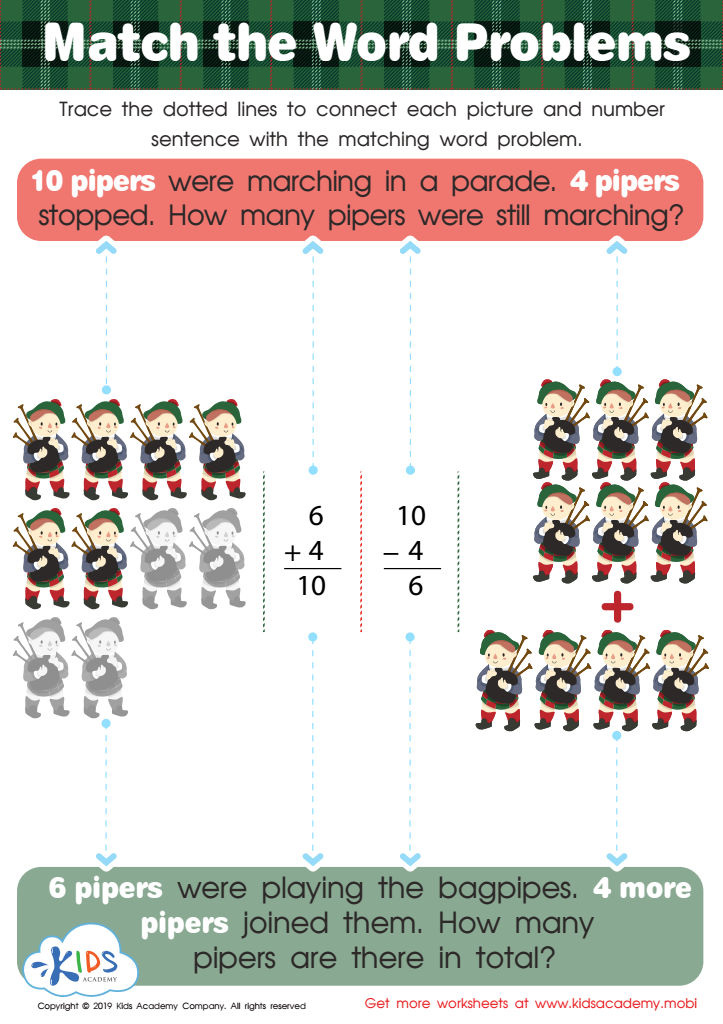Logical thinking development Normal Math Worksheets for Ages 7-8
4 filtered results
-
From - To
Enhance your child's logical thinking skills with our engaging Normal Math Worksheets, designed specifically for ages 7-8. These worksheets focus on developing critical cognitive abilities through fun and interactive math challenges. Ideal for classroom use or at-home learning, they encourage problem-solving, pattern recognition, and reasoning skills in a playful way. Each worksheet is crafted to align with educational standards, ensuring comprehensive skill development while keeping young learners motivated. Parents and teachers can easily integrate these resources into their curricula, making math a delightful adventure. Help your child build a solid foundation in logic and critical thinking with our thoughtfully curated worksheets.


Grocery Store Fun! Worksheet


Voting Worksheet


Tricky Problems Worksheet: Part 2


Match the Word Problems Worksheet
Logical thinking development and foundational math skills are crucial for children aged 7-8 as these skills lay the groundwork for future academic and real-life success. At this age, children are transitioning from basic arithmetic to more complex reasoning, making it essential to cultivate logical thinking. This stage is integral for enhancing problem-solving abilities, fostering creativity, and improving critical thinking.
Parents and teachers should prioritize this development because strong logical reasoning supports not only mathematical skills but also proficiency in subjects like science and literacy. When children learn to analyze patterns, make predictions, and understand cause-and-effect relationships, they become more adept learners overall. Engaging in activities that promote logical thinking helps them process information systematically, boosting their confidence in tackling challenging tasks.
Moreover, fostering these skills encourages independence and resilience. Children become better equipped to face challenges, turning mistakes into learning opportunities rather than setbacks. As they navigate both academics and social situations, logical thinking equips them with the tools necessary for effective decision-making.
By nurturing logical thinking and math skills now, parents and teachers can help set children on a path toward lifelong learning and problem-solving, essential components in our increasingly complex world.
 Assign to My Students
Assign to My Students




















